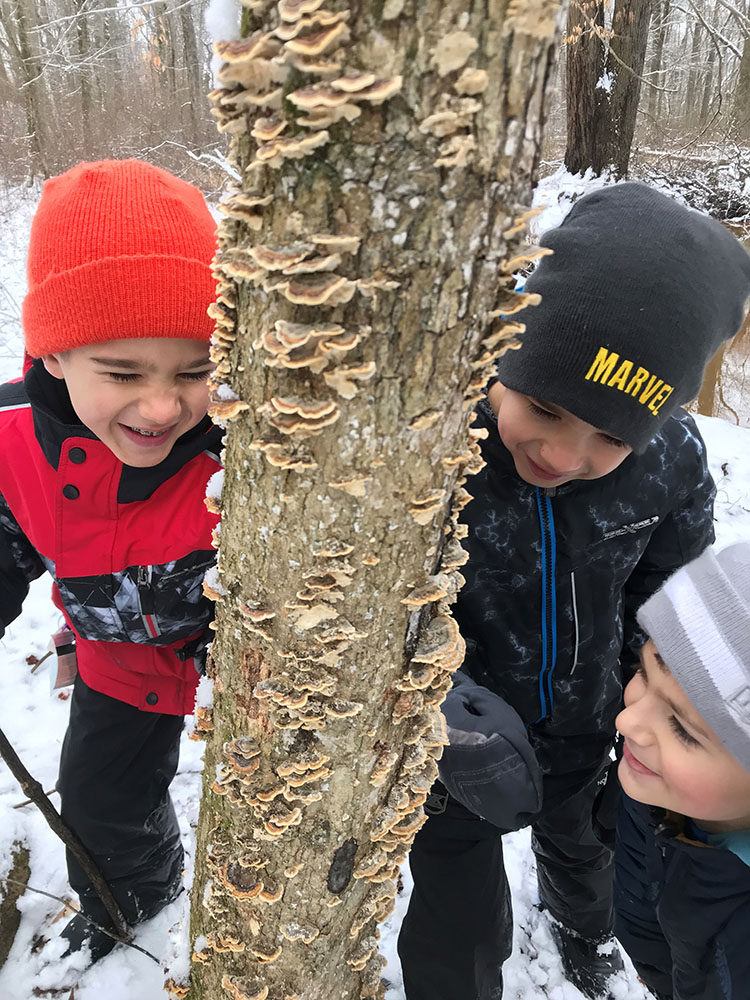Joining reading and mathematics, science testing is now required under the federal No Child Left Behind (NCLB) act. Starting in the 2007-2008 school year, public schools began to administer science assessments at three grade levels — at least once during grades 3-5, grades 6-9 and grades 10-12.
What does this change mean for your child? Here’s a glimpse of what educators are saying and where to get more information.
The Underlying Problem
U.S. Education leaders agree that the nation faces a science education crisis, as described in these public statements.
• “Not since the Soviet Union’s launch of the Sputnik satellite (in 1957) has the need to improve science education in America been as clear and as urgent as it is today." This country’s economic health and security depend on “a steady supply of young people well prepared in science and mathematics.” — Jo Anne Vasquez, PhD, former president of the National Science Education Leadership Association
• “Fewer than half our students graduate from high school ready for college level math and science.” — former U.S. Secretary of Education Margaret Spellings
• “Young people are not entering science, technology, engineering and math (STEM) careers.” Strong science education is “critical to the future of these kids.” — Page Keeley, president of the National Association of Science Teachers
Positive Focus on Science
Adding science to the subjects requiring standardized assessment reporting can be positive.
In some schools, subjects that aren’t tested tend to fall by the wayside, observes Don Wahlers, math and science supervisor for Ewing (NJ) Public Schools. Although he says Ewing is “pretty aggressive” in its science program, Wahlers thinks the NCLB science testing requirements could help other schools put more money, time and effort into science.
The science test scores don’t count toward NCLB’s required Adequate Yearly Progress (AYP) as do the results of reading and math tests. Nevertheless, “the scores are still reported on the school report card so the public is aware of the school’s performance,” says Sandra Alberti, EdD, the New Jersey Department of Education’s math and science education director.
New Jersey has been testing science in 8th grade since 1999, in 4th grade since 2005 and administering high school science proficiency assessments since 2007, she notes. State tests are aligned with state science standards, which are reviewed every five years in New Jersey.
Aligning with Standards
The breadth and depth of science standards concern science teachers. They want to ensure that students learn both the content and process of science. Therefore, “The topic of NCLB can be a little touchy,” says Chris Smith, science curriculum coordinator for the Upper Dublin (PA) School District, known for its strong science program.
Upper Dublin regularly reviews its science curriculum, and a new elementary science program began this year. Smith explains that for high school, state standards “are keyed for 10th grade,” meaning that the tested subjects should be taught to students before their junior year. In Upper Dublin, doing so required taking some aspects of physics and “tucking them into” the 8th grade physical science course. Pennsylvania standards for environmental science include knowledge about crops grown in the state, which Upper Dublin includes in social studies.
No serious change has recently taken place in the science program at Radnor School District, said instruction supervisor Joseph Cannella. He explained that the district’s resources, materials and curriculum are already aligned to state and national standards. Still, there may be some tweaking to match the state’s “eligible content” with the district’s “K-12 curriculum map,” Cannella acknowledges.
At the high school level, New Jersey is moving away from giving a comprehensive science test at the end of 11th grade, shifting instead to course-specific competency assessments. A biology “end of course” assessment was implemented last year and Wahlers expects that chemistry will eventually be assessed this way as well. End-of-course tests target a sub-set of science standards, instead of requiring teachers and students to take time from a different course to review content from other science subjects.
Pennsylvania, Delaware and New Jersey assessments contain both multiple choice and open-response formats. Detailed information and sample questions are available on the website of your state education department.
Concerns
Some issues expressed by educators include:
- Testing is costly. Funding may constrain quality. It’s easier and cheaper to draw from a bank of multiple choice questions testing pieces of information rather than to develop and carefully measure deeper conceptual understanding.
- Do tests assess understanding or are they a regurgitation of facts? Students learn to give correct answers, but often then revert to misconceptions when actually using science.
- Are the standards appropriate for all children? Does the required pace best serve all children? Do the assessments measure the process that is science, as well as content?
- Does the assessment process allow time to properly investigate, critically explore, develop and test hypotheses and actively perform the work of science? Is there time for real life application, problem-solving and discussion?
- Are science electives such as astronomy, horticulture, robotics and anatomy less feasible for students because of required state assessments? How is technology integrated into the curriculum?
- Teachers don’t see the tests; how can tests benefit teaching if they can’t see specific areas where students are weak or strong?
- How do teachers fit in all the content?
What Can Parents Do?
Parents share responsibility for preparing youth to succeed in science. Experts offer these suggestions:
- Encourage kids’ inquiry and information gathering. Support and model curiosity about the natural world. Ask and learn how things work.
- Ask what children learned, as well as what they did in science.
- Engage your children about their class and homework.
- Attend school open house and family science nights. Ask what the school’s science program looks like.
- Keep a positive image of science; don’t demean the subject by telling a child that you were never any good at science or didn’t like it.
- Ask teachers how you can support science learning at home. Become familiar with the school’s science standards.
- Read and learn what good science is and how it may differ from how you learned it.
Ann L. Rappoport, PhD is a contributing writer to MetroKids.






